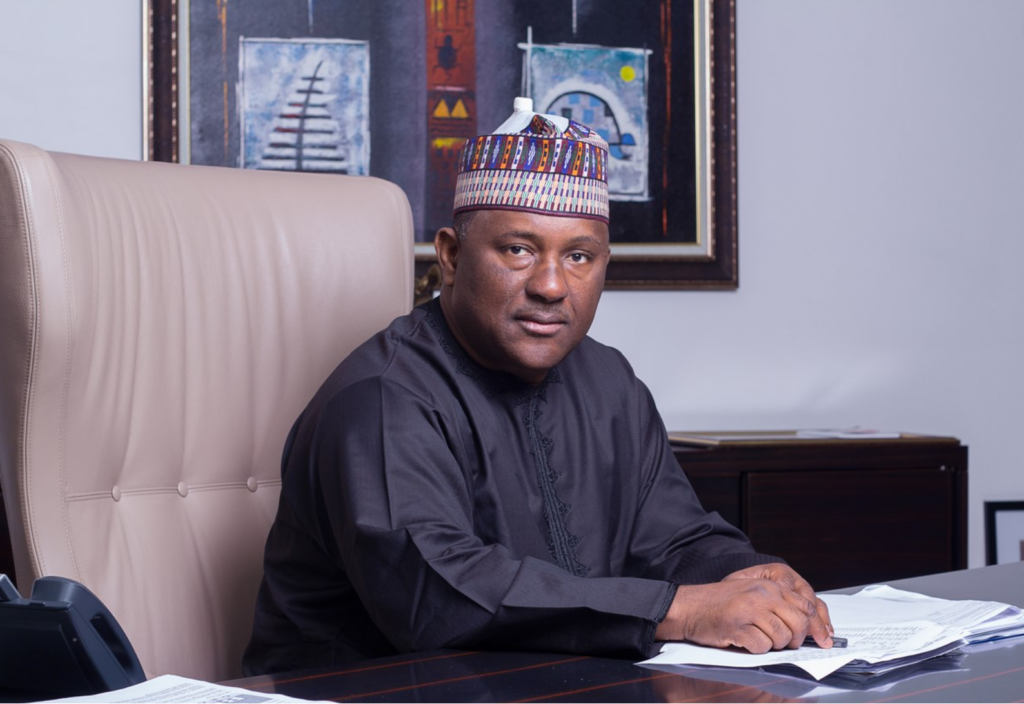AbdulSamad Rabiu, Nigeria’s second richest man and Chairman of BUA Cement and BUA Foods, has experienced a significant decrease in his net worth, dropping by $1.1 billion over the past 90 days.
As of August 16, 2024, Rabiu’s net worth stood at $4.8 billion, down from $5.9 billion as recorded on May 6, 2024, by the Forbes Real-Time Billionaire Index.
This decline follows an earlier increase from $5.7 billion at the beginning of the year, which was driven by stock market movements.
Rabiu’s wealth is closely tied to his substantial stake in BUA Foods, where he holds a 93% share. BUA Foods, a dominant player in Nigeria’s food sector, is the country’s largest producer of noodles and flour.
The company’s performance has a direct impact on Rabiu’s financial standing, as reflected in its recent quarterly and annual reports.
Rabiu’s financial setback mirrors broader trends affecting Nigeria’s wealthy elite. Aliko Dangote, Africa’s richest man and the driving force behind the $20 billion Dangote Refinery in Lagos, has also seen his wealth decline by over $1 billion this year.
The depreciation of the naira and fluctuations in equity values have contributed to these losses. Despite these challenges, Dangote remains Africa’s richest man, ranking 145th on the global list of billionaires according to Bloomberg data.
Rabiu, born in 1960 in Kano, Nigeria, followed in the entrepreneurial footsteps of his late father, Ishak Rabiu, who founded a conglomerate with interests in manufacturing, finance, and real estate. The recent losses highlight the volatility and challenges faced by Nigeria’s business leaders amidst economic fluctuations.
What to know
In 2023, the Nigerian naira experienced a significant depreciation against the US dollar, marking one of its worst performances since the country returned to democracy in 1999. This sharp decline led to the naira being recognized as the worst-performing currency in Africa.
In response to the currency’s volatility, the Central Bank of Nigeria consolidated all segments of the foreign exchange market into the Investors and Exporters (I&E) window, reintroducing the willing buyer, willing seller model in an attempt to stabilize the situation.
This policy shift had profound effects on Nigeria’s economy and its wealthiest individuals. AbdulSamad Rabiu, Chairman of BUA Cement and BUA Foods, saw his fortune diminish significantly.
Within three months of the naira devaluation, Rabiu’s net worth shrank by approximately one-third, reflecting the severe impact of the currency’s decline on his financial holdings.
BUA Cement, a cornerstone of Rabiu’s wealth, also felt the effects of the economic turbulence. The company’s market capitalization dropped slightly to N3.28 trillion in 2023, down from N3.31 trillion in 2022.
This decline, though modest in comparison to the broader market challenges, shows the broader economic difficulties faced by Nigeria’s corporate giants amidst the ongoing currency crisis.
The situation highlights the vulnerability of even the most robust businesses to macroeconomic shifts, particularly in emerging markets like Nigeria, where currency stability remains a critical concern.
